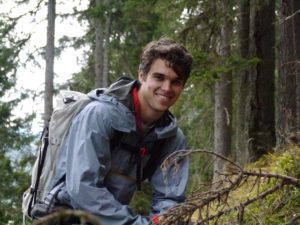I believe this is a decisive moment in conservation. As stewards of the earth, we are charged to protect and cherish its beauty, not ravage and exploit it, for one another. However, over the last several weeks, the present administration has put environmental work under threat. For example, in an unprecedented move for land protection in the US, President Trump trimmed both Bears Ears and Grand Staircase-Escalante National Monuments in Utah by ~ 2 million acres.
The downsizing of these two culturally cherished and geographically stunning National Monuments is a symbolic move by our President, that declares this land is for exploiting not sharing. Although the US has a long history of taking and developing land, this gesture, confirms this is the direction the administration will take for the next several years. President Trump has stated that in order to be great, we must develop and dominate the land.
Conservationists cannot ignore the significance of Trump’s actions. There has been a firestorm of responses across the country to Trump’s cut to the national monuments, from plans of Native American tribes to sue on the President’s legal authority to downsize these monuments, to social media outrage from massive outdoor companies like Patagonia and REI.
While other regulations and rules that Trump is trying to execute may be remedied in the future, his moves against climate change and conservation will have lasting impacts. The rate of environmental change is exponentially increasing every year, with the mitigation of these effects growing more and more challenging.
The success of Trump’s environmental agenda will be determined by the response of the people. Conservation organizations continue to lead this fight, and not just when issues make headline news but every single day, because beyond any other problem today, it will have an influence on the future of humanity and our shared lands. The agenda will also test the resolve of conservation organizations across the country. The challenge will be whether organizations can persevere as they face new obstacles, which complicate their efforts.
Yet now is the time to stand with a hopeful outlook towards the future and not focus on the shortcomings of today. Conservation that begins at the local level is critical to circumnavigating the degradation of environmental work, or lack thereof, at the highest level. In fact this is already happening with the Paris climate agreement.  Several states around the country have joined together to create the United States climate alliance.
Several states around the country have joined together to create the United States climate alliance.
Similar measures taken around the country can generate a collective effort that may negate the detrimental effects of the president’s environmental agenda. We, the people, can be empowered by our ability to meet on our common ground, both protecting the land and listening to everyone, especially the communities involved.
By Teddy Lyman




